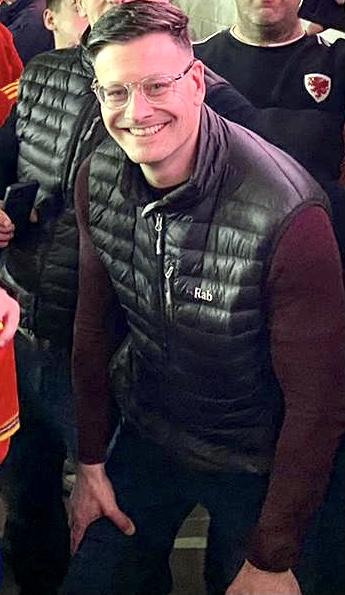About This Course
This is a flexible part-time, level 7 postgraduate short course delivered online.
We have all heard that successful teams are greater than the sum of their parts but exactly why is it that some teams excel, and others stumble? It is more than just individuals’ talent! This module covers prominent factors that aid the development of effective teams applicable across performance domains.
Who is this Short Course suitable for?
This online distance learning module on the Psychology of Team Performance is ideal for anyone interested in enhancing team effectiveness. Whether you are involved in sports, business, emergency services, performing arts, or any other field, effective teamwork is crucial for achieving outstanding results.
Our learners have included people from across the UK, and more widely from across the globe. This short course is part of our MSc Performance Psychology (distance learning), and our alumni include:
- Professional sport coaches and instructors: Rugby, Cricket, Gaelic Football, and Endurance Running Coaches
- UK Coaching Team Members
- Elite Athletes: Professionals in football, gaelic football, cricket and rugby players, Golfers,
- Performance Directors for Professional Rugby Union Teams
- Opera Performers
- Professional Musicians
- Business Leaders
- Senior management from organisations such as MasterCard and Facebook
- RAF Helicopter Rear Crew
- Air traffic controllers
- Police Officers
- General Practitioners and Anaesthetists
- NHS Managers
Why study this course?
The main objective of this module is to highlight the importance of team inputs and processes that influence team performance. Learners will understand theories, research literature, and the application of research to real-life situations relevant to such influential team factors.
How long does this course take to complete?
This short course takes 12 weeks to complete. You will have access to all lecture material at the start of the course, which will enable you to go as fast or as slowly as your personal circumstances dictate.
Assessment
This flexible assessment allows the learner to follow their own interests by writing an applied report set in their performance domain. The report will emphasise an aspect of team most relevant for their context. (Word count 2,000).
Technical Requirements
This is an online course delivered via Blackboard Ultra. Students must have access to a stable internet connection, IT and up-to-date computer and software, a microphone and headphones or speakers.
Tutor
Dr James Hardy

Having obtained his undergraduate degree from the University of Birmingham, James went to North America to see how they did sports psychology. He completed his postgraduate training (both MA and PhD) at the University of Western Ontario, Canada, under the supervision of Prof. Craig Hall. He is a regular presenter at international conferences and has published numerous research articles focusing on his two main areas of expertise: mental skills (specifically, self-talk and imagery) and group dynamics (e.g., team cohesion and leadership) in both the sport and exercise domains.
James guested edited the first special edition of a journal devoted to Self-talk in Sport (in The Sport Psychologist) and is an Associate Editor for the Journal of Applied Sport Psychology as well as an Editorial Board member for the Journal of Sport and Exercise Psychology. His research has been funded by the England and Wales Cricket Board (ECB), UK Sport, ESRC, and City Football Services (aka Manchester City FC). James also coaches men's gymnastics (MAG).
Course Content
What will you study on this course?
Business managers and sports coaches traditionally spend a lot of time and effort developing individual talent levels in their teams. An important feature that can be as important, if not more relevant, is the development of effective teams and teamwork. This is particularly true for teams engaged in interactive tasks (such as football, rugby etc). In fact, the team building business is a multimillion-pound industry. In this module, we will look at some of the prominent factors contributing to developing effective teams.
Learners will understand theories, research literature, and the application of research to real-life situations relevant to the following issues:
- Teamwork
- Personality and teams
- Team cohesion
- Roles
- Leadership
- Team building
This is roughly the order in which we cover the above topics, too. Theoretical content and related research (i.e., evidence) will be presented and discussed along with their practical significance. In fact, because of the applied nature of team building, this theme is threaded throughout each of the other topics when appropriate.
Learning Units
- Module fundamentals
- Teamwork
- Personality and teams
- Team cohesion
- Roles
- Leadership
- Team building
- Live sessions x 3
Course Cost
- The fee for the 2024/25 academic year will be £556 (including VAT).
- Please see our Postgraduate Fees and Finance page for further information.
Entry Requirements
Candidates will typically require at least a 2.ii honours degree. We also encourage applications from those with non-graduate or alternative professional qualifications and from those who can demonstrate at least 3 years relevant work experience within a high-performance environment (e.g. as an athlete, coach, professional musician, business or finance executive or within a broad range of other professional roles).
Application
How to Apply
Please make sure you read and follow the step-by-step application guide as this will specify which sections of the application form are compulsory for the type of course you want to apply for and save you time.
Please prepare the following information (in a Word document):
- Current employment details;
- Years of experience, and employment history (where relevant)
- Name of staff member and organisation that have approved your funding for this module.
This will speed up the process of completing the application form.
To apply for this course, you need to create an account in our APPLICANT PORTAL
You will need access to the email address you specify while creating your account to confirm it.
After creating an account, you will see a homepage with several tabs:
- Personal
- Programme
- Info
- Contact
- Education
- Employment
- Language
- Finance
You need to complete all sections before submitting your application.
When a section is complete, a ‘tick’ symbol will appear below it.
- Click on ‘Non-graduating applications / Stand alone Modules’, then select ‘Non-graduating postgraduate’.
- In the next section, select Non-Graduating Taught Modules in Sport Health and Excercise Science (NGGT/SHES) Click Save and Continue.
- On the next page, the default for the first question is Full Time. You need to change this to ‘Part time’:
- You now need to input the module code. Psychology of Team Performance: the code is JXH-4104. This section must be completed for your application to be processed.
- You also need to state the start date. Please make your selection, then click ‘Save and Continue’.
- IMPORTANT: You do not need to write a personal statement to apply for this course. Instead, please upload the document including employment, experience and education information that you have created prior to starting the application that contains the name of your current employer, the number of years of experience you have, and your highest qualification to date. Click Save and continue.
You only need to enter the details of your highest qualification to date, e.g. if you have a postgraduate qualification, please only only include this.
You will be asked for evidence of the qualification. Please either upload a copy of your qualification if it's easily accessible, or upload the Word document again (that you prepared earlier).
details not required as you've already prepared this
Please scroll to the bottom of the page and click on ‘I have no employment history’ (as you have already provided this in your Word document).
If you are self-funding, please provide all details as appropriate.

